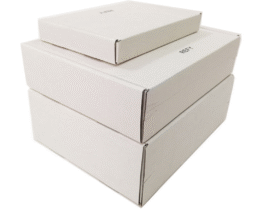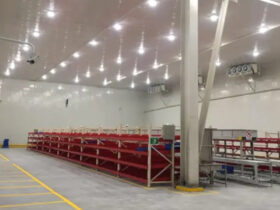I’ve worked with casting and machining teams across different sectors, from automotive to industrial equipment manufacturing. You start to see real differences between foundries over time—some just handle basic work, others are far more advanced. I look at a few things when I evaluate a foundry: process control, in-house capabilities, inspection methods, and overall consistency. Not all foundries have the infrastructure to manage high-spec orders with tight deadlines. That’s why I recommend evaluating companies that are built for both precision and volume.
In Peoria, there’s one foundry that consistently checks all those boxes. If you’re comparing options and want long-term reliability, I’d point you toward this foundry for several reasons I’ll cover below. Their technical process and manufacturing setup give them a real edge.
What You Should Look For in a Casting Foundry
If you’re serious about sourcing quality aluminum castings, you can’t afford to overlook capabilities like permanent mold casting, CNC machining, and in-house heat treatment. You’ll also want a foundry that understands metallurgy, material behaviors, and cooling dynamics. The right partner won’t just pour metal—they’ll guide you through structural requirements, optimize mold designs, and give you consistent results.
I’ve seen a lot of shops that outsource half of their work, which leads to delays and inconsistent quality. That’s one of the reasons I started looking more closely at foundries that keep the entire process internal. It reduces risk and makes scheduling much easier for project managers and production teams. That’s a major reason I continue to bring up Alcast Company when people ask for a foundry in Illinois.
Why Alcast Company Deserves a Closer Look
Alcast Company has over 50 years of experience in aluminum casting, and they’ve kept their operations in the U.S.—something that matters if you care about supply chain security and compliance. Their facility in Peoria is built for permanent mold casting, but they also handle semi-permanent, tilt pour, and sand casting. Most importantly, everything is done in-house: from the initial pour to CNC machining, heat treatment, and final inspection.
That’s rare. A lot of shops rely on external vendors to finish the job. With Alcast, you don’t have to chase down multiple companies to get one part completed. That’s especially helpful when you’re handling complex orders or working under a tight timeline.
What stands out most to me is their use of electro-magnetics in casting. They’re the only U.S. aluminum casting company doing that. It shows they’re not just meeting industry standards—they’re pushing their own benchmarks. They also run advanced simulations and CAD analysis to test mold flow, which reduces casting defects before production even starts.
Production Capabilities and Quality Control
Their process control is solid. They’re running computer-aided tools to simulate every casting, which helps avoid internal flaws and shortens lead times. That kind of planning pays off when you’re producing parts that require close tolerances. Whether you’re building for aerospace, automotive, or industrial sectors, you’re going to need consistent dimensional accuracy, and they’re built to deliver that.
Their approach to heat treatment and x-ray inspection also sets them apart. I’ve worked with clients who need load-bearing components or pressure-sealed housings—components where internal voids could be a problem. Alcast has systems in place to catch those issues before parts ship out. That’s how you reduce field failures and build long-term reliability into your supply chain.
Practical Considerations for Buyers
Let’s say you’re in charge of sourcing for a production run. You want clear pricing, realistic turnaround times, and predictable quality. Alcast maintains and builds their own proprietary casting machines, which keeps downtime low and pricing competitive. That level of control over equipment translates directly into fewer delays and a smoother overall experience.
They also support large-scale and small-batch orders. That gives you flexibility whether you’re testing a new design or fulfilling repeat orders. Their setup allows you to scale as needed without needing to switch vendors halfway through a product lifecycle.
Final Recommendation
If you’re comparing casting foundries in Peoria, I recommend you take a close look at Alcast Company. They’re not just fulfilling orders—they’re partnering on production. With decades of hands-on experience, internal quality systems, and end-to-end manufacturing capabilities, they’re built to support both custom work and high-volume production.
For teams looking to reduce lead times, improve component consistency, and work with a foundry that understands how to support engineering and design needs, Alcast is a strong choice. They’ve put the right systems in place, and that’s something I look for whenever I’m asked to evaluate or recommend a casting partner.











